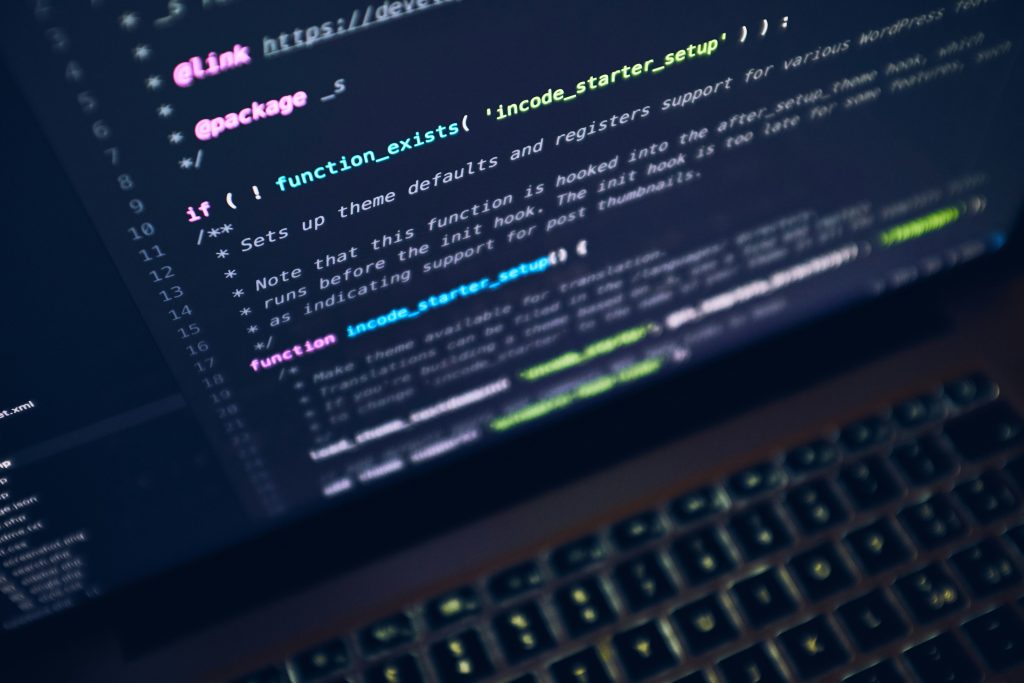By: David Quinn, Staff Writer
Juris Magazine’s David Quinn conducted an interview with Professor Wesley Oliver, Director of the Law and Computing Program, to discuss the Law and Computing Concentration and how lawyers can benefit from understanding coding.
Some portions of the following interview have been edited or omitted for clarity.
Photo courtesy of Unsplash
David Quinn: How long has this concentration been around?
Professor Wesley Oliver: We approved it last academic year, 2023-24.
Quinn: Duquesne is one of a handful of law schools offering such a concentration. Why do you think it is a great choice for law students? How do you think it would help future lawyers in the workplace?
Oliver: To my knowledge, we are the only U.S. law school to have such a concentration. There are a handful of law schools with tech concentrations but none with computing in particular. And some of these tech concentrations — like the one at Suffolk, for instance — are spectacular. Our niche is a specific focus on teaching students to work to find programming solutions to legal or legal process issues. Some US law schools have joint degree programs with computer science schools for advanced degrees, but we are the only one, to my knowledge, that has a specific computing program that requires no background whatsoever in programming.
Quinn: Have you kept in touch with anyone that graduated with the concentration? If so, have any of those people mentioned how it (or one of the classes) has helped them in their current job? Regardless, do you know if any of those students are working in a job related to that concentration?
Oliver: We started it only last year but do have one person who graduated with the concentration. He was an amazing programmer who had no background before our class — Joe Pisano is his name. He decided not to go into legal technology, but he would have been a truly skilled developer.
Quinn: What kinds of jobs or internships could you pursue with this concentration? What companies are most interested in hiring students with the skills they learned in this concentration?
Oliver: All of our lives are increasingly dependent on technology — and the kind of technology that is driven by computers. Lawyers then deal with societal issues that pop up in any number of legal contexts from torts, to contract, to property, to criminal. Every lawyer will better understand the cases he or she will encounter with a background in the fundamentals of how computers think. But for students who realize this method of addressing legal issues is more to their liking than the traditional practice of law, there are other options. They can work as legal software developers. Folks coming out of the program would not be able to develop very sophisticated apps on their own, but they have the skills to be a part of a team that includes those with more advanced programming skills. And that hybrid skill set — understand law and programming— is what is most needed in these teams.
Quinn: Which classes in this concentration would you recommend to students?
Oliver: Coding for Lawyers and Statistics and Machine Learning is required. If you are interested in software development, we strongly recommend that you take Data Structures in the computer science school. If you are more interested in the traditional practice of law, then e-discovery would be really important for your career. The legal tech externship then allows an opportunity to learn complex problem solving. But there are not a lot of options within the concentration because we have so few faculty who teach in the area.
Quinn: When did you first offer Coding for Lawyers, and how has the class changed since it was first offered?
Oliver: We first offered it 3 years ago. It has changed greatly as generative AI has made it easier for students to find solutions online. We let them use generative AI, so with that, we are able to move more quickly and have them tackle harder problems earlier. The hard part about programming is getting the syntax right. Generative AI helps get over the hurdle of learning the syntax — or grammar— of a programming language.
Quinn: Do you have any plans for growing the program? Is this something you plan to address in your sabbatical next year?
Oliver: I had planned to take a sabbatical next year, but the program is growing so fast I realized I should not be away. I am hoping to create a tech track JD where first year students take Coding and Machine Learning in their first year and delay property until the second year. This would allow students to be able to get more advanced in programming before they graduate and potentially be eligible for legal tech internships after their first year but certainly by their 2L summer.
